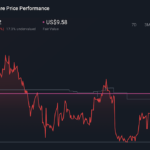
There’s one big fly in the ointment for this former high-flying stock.
What goes up can come down. Just look at Super Micro Computers (SMCI 3.40%), commonly referred to as Supermicro.
Shares of the technology solutions company skyrocketed 246% in 2023. This momentum continued into 2024, with Supermicro stock up another 318% by mid-March. Since then, though, everything has been downhill. Supermicro is now down over 60% below its peak.
What should investors do? Here are two reasons to buy Supermicro stock hand over fist — and one reason to stay away.
Reason to buy No. 1: Growth prospects
Supermicro sells the building blocks for technology infrastructure: servers, storage systems, rack solutions, networking devices, and more. To say the demand for the company’s solutions is hot is an understatement. Supermicro announced last month that sales soared 110% year over year in the quarter ended June 30. In a single quarter, the company raked in more money than it did in the entire year in fiscal 2022.
Much of this spectacular growth was driven by artificial intelligence (AI). Organizations in nearly every industry are scrambling to harness the power of AI, especially with the rapidly improving capabilities of generative AI.
Supermicro could be poised for even more growth as data centers deploy its direct liquid cooling (DLC) systems. This technology can offer a lower total cost of ownership than traditional air-cooled systems.
Nvidia‘s growth could largely fuel Supermicro’s growth. Although the shipment of Nvidia’s new Blackwell chips has been pushed back, the delay is only temporary. Nvidia CEO Jensen Huang predicts that Blackwell could become his company’s most successful product ever. If he’s right, Supermicro could be poised for more explosive growth.
Reason to buy No. 2: An attractive valuation
In today’s market environment, it’s not easy to find a tech stock that sports an attractive valuation. However, thanks to the big sell-off in recent months, Supermicro’s valuation indeed looks attractive.
The stock trades at a forward price-to-earnings ratio of only 13.1. That’s much lower than the average forward earnings multiple of 28.2 for the S&P 500 information technology sector. More importantly, Supermicro trades at a discount to its biggest rival, Dell.
Reason to stay away: A dark cloud of controversy
However, there is also a major reason investors might want to not touch Supermicro with a 10-foot pole. The company is under a dark cloud of controversy related to its financial accounting practices.
On Aug. 27, Hindenburg Research published an online report with allegations of “accounting manipulation, sibling self-dealing, and sanctions evasion” by Supermicro. Hindenburg said it conducted a three-month investigation that included interviewing former Supermicro employees. It maintained that this investigation “found glaring accounting red flags, evidence of undisclosed related party transactions, sanctions and export control failures, and customer issues.”
The day after this scathing online report came out, Supermicro announced that it didn’t expect to file its annual 10-K on time for the fiscal year ended June 30. The company said more time was needed for management to “complete its assessment of the design and operating effectiveness of its internal controls over financial reporting.”
Supermicro CEO Charles Liang released a letter on Sept. 3 to address the controversy. He wrote that the company’s “production capabilities are unaffected” by allegations or the delay in filing its annual report. Liang also stated that management doesn’t “anticipate any material changes in our fourth quarter or fiscal year 2024 financial results.”
What should investors do?
Aggressive investors might decide to buy Supermicro stock hand over fist while it’s beaten down. Such a strategy could pay off handsomely if the company’s growth prospects prove to be as promising as they appear and its internal controls issues are satisfactorily addressed.
However, I think most investors will be better off taking a wait-and-see approach with Supermicro. Sure, Hindenburg Research is a short seller with a financial motivation to drive Supermicro’s shares lower. But Supermicro’s 10-K delay raises questions that would be concerning even if Hindenburg’s report had not been published.
If the controversy fades, investors should still have an opportunity to buy Supermicro at a reasonable valuation. What goes down can go up, but it’s a good idea to make sure it will go up before jumping aboard.
Keith Speights has no position in any of the stocks mentioned. The Motley Fool has positions in and recommends Nvidia. The Motley Fool has a disclosure policy.








